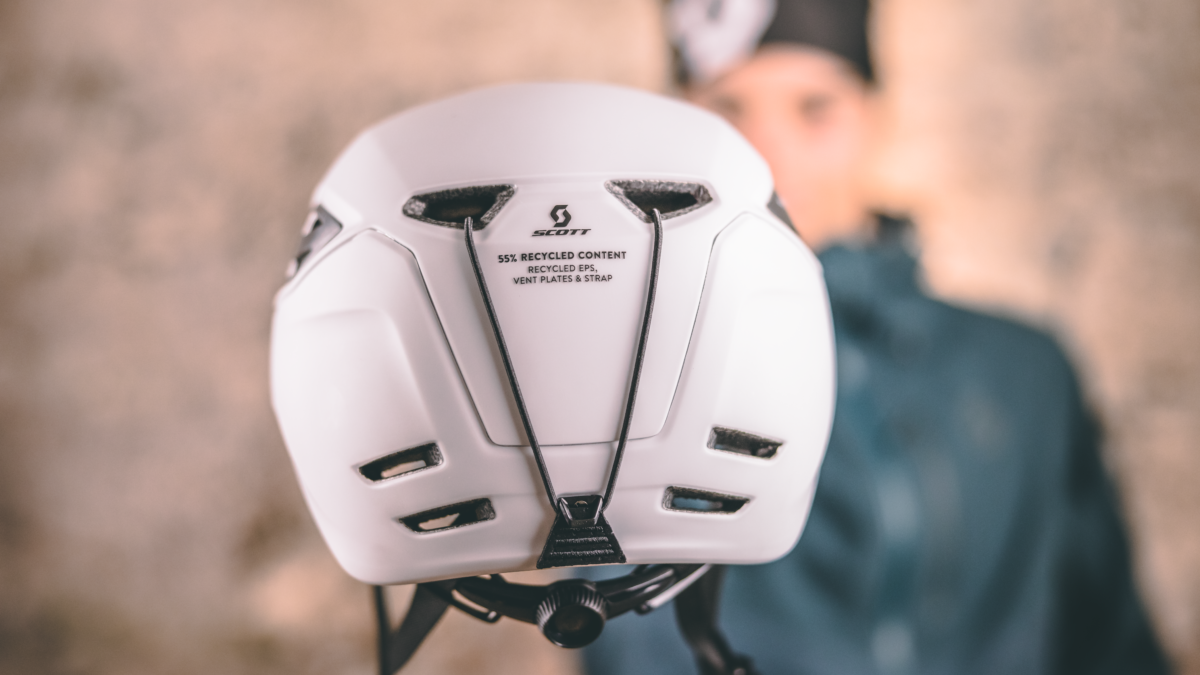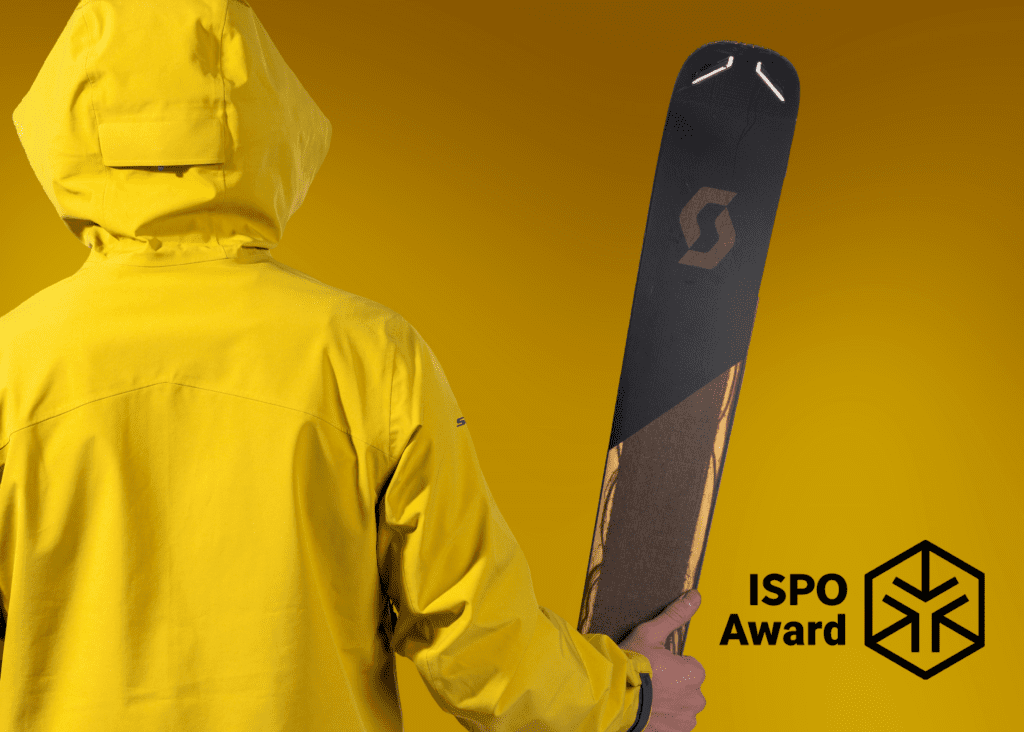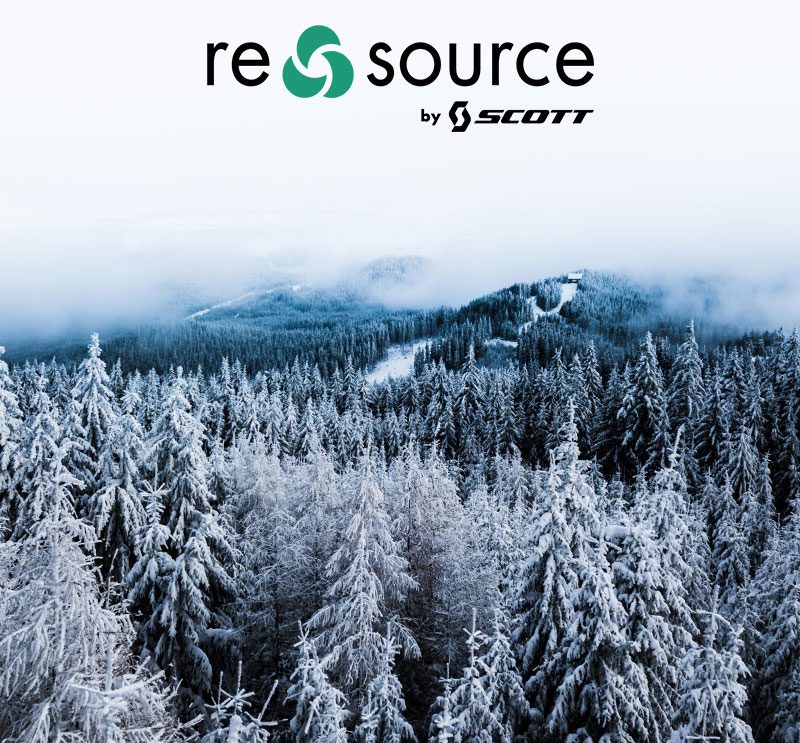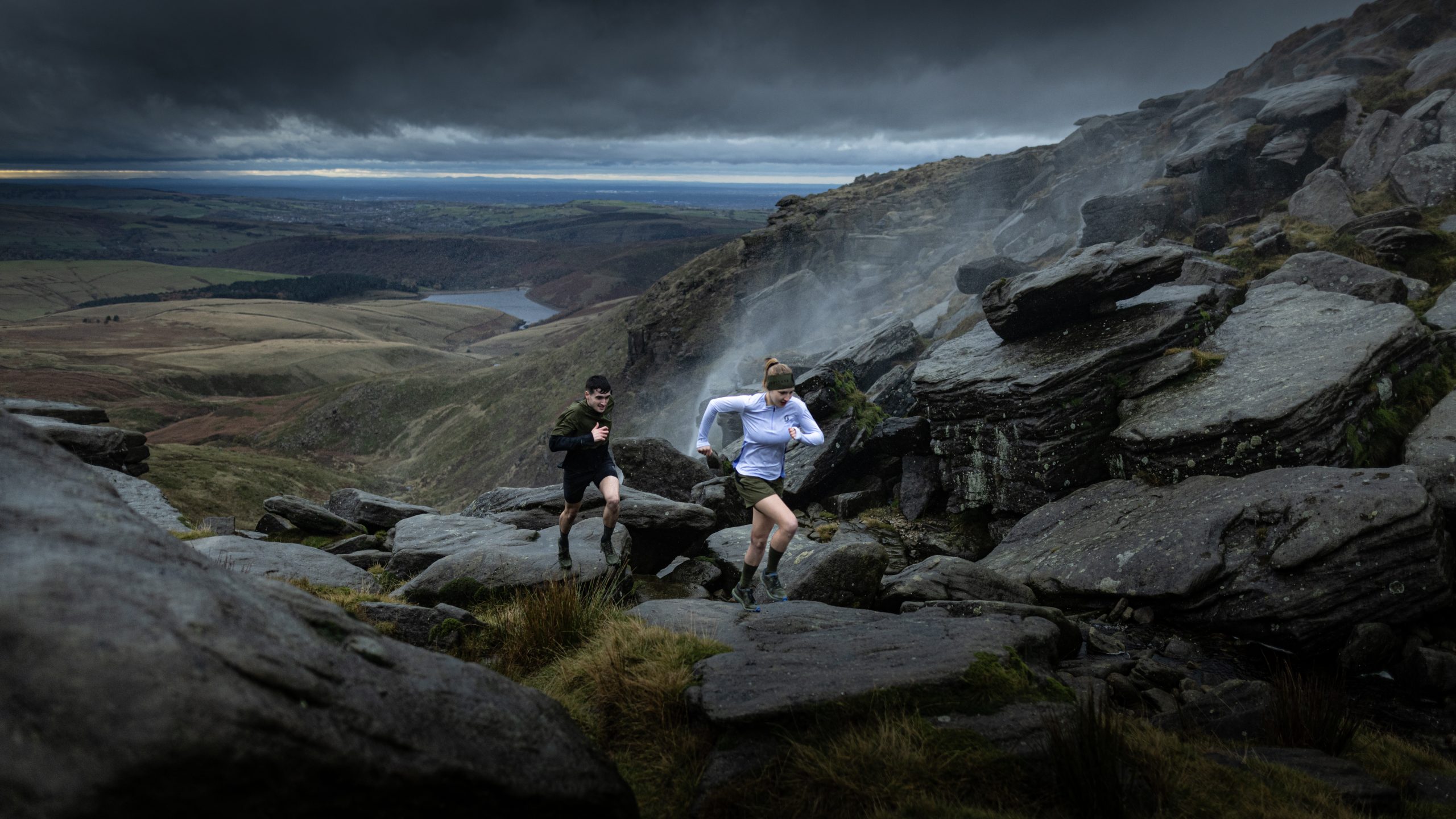Sponsored
SCOTT’s sustainable RE-SOURCE program expands into hardgoods

Photo: SCOTT Sports.
UTAH — Into its third year, RE-SOURCE BY SCOTT, a program dedicated to creating sustainable performance-ready products, has expanded into hardgoods. The RE-SOURCE is built on corporate responsibility and simply doing the right thing for the right reasons.
For the 2020/21 season, SCOTT released apparel and softgood products that met its strictest sustainable product criteria. These products use recycled, bio-based and renewable materials certified by third parties, representing at least 50% more eco-responsible materials by weight. In addition, the product cannot contain any PFC-based durable water repellence.
“We are committed to improving the impacts of our products and business practices, preserving the environment for future generations, and stimulating positive change in our communities.”
The 22/23 season it brought more sustainable hardgoods like the SCOTT Shield Recycled goggle, the Superguide LT 95 ski, Riff Sunglasses, and the Couloir Tour helmet that meet the same criteria listed for the softgoods and apparel.
For these products with purpose, SCOTT relies on bio-based plastics. These plastics, contrary to conventional plastics made from fossil fuels, are made from organic matter. In this case, bio-plastics from castor bean oil. Castor plant farming is predominantly located in India, where the crops are grown mainly in semi-arid and drought-prone territories and thus do not compete with food crops and do not contribute to deforestation.
When using bio-based plastics, the most important verification is that the biomass used is not in competition with food sources. Biomass should be seen as a waste product or non-food source. All of the sunglasses collection uses partially bio-based plastics for the frames. The Cosmos and Celeste ski boots also employ bio-based plastics.

Perfluorinated and polyfluorinated compounds, also known as PFCs, are a group of fluorinated substances that have long been used for durable water repellence (DWR) in clothing and gear. They offer many benefits: repellence against water, oil, and dirt, and thermal and chemical stability while preserving the fabric’s breathability to which it is applied. However, PFCs do not easily break down in nature and instead bioaccumulate in living organisms and travel up the food chain, where they can cause severe health issues for both animals and humans. SCOTT is committed to PFC-free, durable water repellence.
“We aim to maximize the sustainable nature of our products while still maintaining their high level of performance through innovation, technology, and design.”
The new Superguide LT 95 ski combines sustainable materials to offer unique skiability. The certified wood core makes the ski lively and responsive, while the flax fibers absorb vibrations, bringing assistance and comfort to another level. Also included are recycled materials in the base, edges, and sidewalls of this ski, and the top sheet is partially made from biobased materials from castor beans. MORE THAN 50% ECO-CONTENT BY WEIGHT.
The SCOTT Shield Recycled goggle is the latest addition to the iconic Shield Range. This goggle represents a proof of concept and a first step into the world of circular products. Over the last year, SCOTT has collected old SCOTT goggles that lived beyond their useful life and recycled the frames into new ones. The goggle strap is made from 100% recycled polyamide from Fulgar®. All the goggles’ component manufacturing and assembly are done in Europe. MORE THAN 60% ECO-CONTENT BY WEIGHT.
“We take into consideration that the earth’s resources must be used in such a way that ecosystems and future generations shouldn’t be adversely affected.”
The Couloir helmet is a lightweight, touring-specific winter helmet. This helmet is designed to work with a beanie, with over 55% recycled material. The EPS, straps, and vent plates are all made using recycled waste.
Modern design, outstanding quality, and more eco-responsible, the Riff frame is made from ECONYL® regenerated nylon, acquired by recycling nylon waste, such as fishing nets, fabric scraps, and carpets. The lenses are made from bio-nylon, and in addition to that, the SCOTT Riff comes with a recycled material pouch.
“We consider that all people involved in our value chain should be treated fairly with dignity and respect.”



















